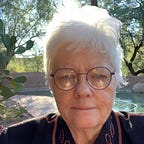Education, Or: What IF IT DOESN’T WORK?
Road school (see part 1 here) is where you take your 12 year old and your 14 year old and hit the road, without regard for practical considerations.
Well, that’s a lie.
And lying in bed, excited because we were going to do IT, I kept myself awake by thinking of all those practical considerations. Namely:
- School
- Music lessons and orchestra
- Gymnastics
Of course there was social life, church life, pets… .
And for the adults, the house, the food in the fridge, burst water pipes, watering the garden, keeping the pool clean, paying the bills, etc etc.
These are generic concerns, most of them, ones we didn’t need to worry about. That’s because we had several older kids, including some in their 20s, who could (if they would) do these things. (But we didn’t have online anything, yet.)
But however the conversation I had with myself at 4am twisted or turned, the main topic always ended up being: Their Education.
It just would not make sense to take them on the road for a good life experience, and then neglect their education. Set them back at school. Make them end up with younger kids because they couldn’t keep up.
In the end we found a great solution. For us. For these kids. NOT a universal great solution, I have been assured.
- We signed them up with a university-administered high-school level correspondence course. We weren’t bothered by the fact that one of them was not old enough for high school. They would have teachers, and us as back-ups, and if they had to work a bit to learn new material, it wouldn’t hurt them. Unless it turned out it did, and then we would find an alternative.
- We had a chat about the fact that now they could go as fast or as slow as they wanted, since their relationship would be with a professor who knew the subject but didn’t know them, and their fellow classmates lived all over the world. They wouldn’t be held back — or advanced too soon — by the needs of a classroom full of kids.
- We had another chat with them that we had already been to 7th and 9th grades and this work was theirs to do. But they could ask questions if they needed help. (This was a word not for them but for me: I love doing math problems, and now they knew they shouldn’t let me.)
- We didn’t realize that correspondence lab science is lame. We needed a better solution. (That’s part of Part 3.)
So the way we pictured IT, our adventure in going where we wanted when we wanted, we would drive away in our Suburban, towing our travel trailer, and they would sit in the car and do whatever assignments they wanted for as long as they wanted. And then mail them off to their professors. And they would finish high school as soon as they were done.
Which is exactly what happened. Except for lab science.
It worked. Except for lab science.
But this quick list leaves out important details, the most important of which was, what did they do with their other 22 hours a day? That’s an important question, and its answer turned out to have everything to do with the long-term impact of the experiment that couldn’t be undone.
To be continued.
Peg Lewis is a novelist, science writer, and world traveler. She likes to write about stimulating locations, such as the Pacific Northwest (the Always Maggie Series about Old Love — Maggie Awake, Maggie Alone, Maggie At Last, and Becoming Ernest) and the Desert Southwest (the Songdog series, in preparation). She also co-authors books (fiction and non-fiction) on space with her husband, well-known space scientist Dr. John S. Lewis. Coming soon: New science-fiction books, a series called The Worlds of John S. Lewis.
